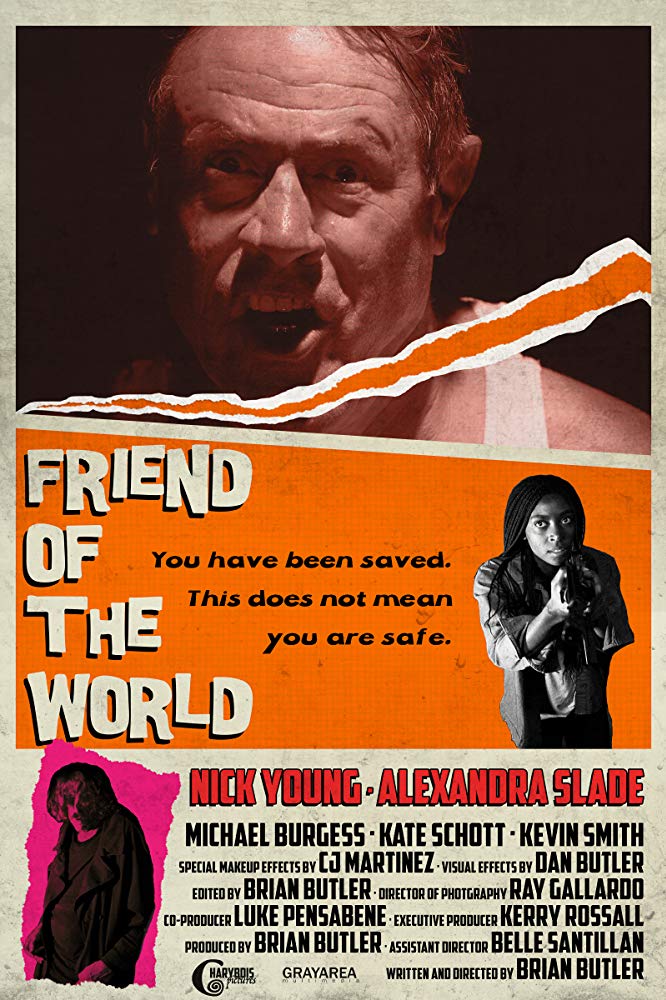Friend of the World is an odd, interesting little movie that defies easy categorization from the perspective of both genre — combining horror, sci-fi, heady drama and even brief comedy — and length — clocking in at a short-film-with-feature-aspirations 50 minutes. Even its format is hard to pin down; with basically two speaking parts and few settings, it feels at times as much like a play as a movie.
But perhaps what makes it stand out the most (at least for the purposes of this site) is the fact that it stars a black woman. Alexandra Slade plays Diane, a young filmmaker who awakens in a large, multi-room military bunker strewn with dead bodies. The only other survivor she finds is a brutish Army type (Nick Young) calling himself General Gore, who provides vague details about a global conflict that resulted in everyone blowing each other up — and oh, by the way, there’s some sort of contagious disease that turns people into body-morphing zombie-types.
The specifics are kind of hazy, but the core of the film is the cat-and-mouse game between Diane and General Gore as she tries to figure out his deal and whether he can be trusted (Hint: no). The two characters are about as polar opposite as you can get: he’s a burly, 50-something, white, heterosexual male with a military background and a gruff, world-weary demeanor. She’s a petite, 20-something, black (The movie’s in BLACK and WHITE; coincidence?), homosexual female with an artistic background and a wide-eyed view of the world — or, as Gore calls her, a “hippy millennial.” As expected, the two struggle to find common ground but must do so in order to survive.
Friend of the World is a decidedly low-fi production, but it makes the most of its meager budget, with some solid makeup effects (whose shortcomings are perhaps masked by the lack of color) and actors who perform admirably, embodying their roles in a largely character-driven story.
The articulate script is dialogue-heavy with a philosophical bent, but since the film is only 50 minutes long, the pacing doesn’t suffer much. While some lines feel a little stiff, the film — the brainchild of writer-director Brian Patrick Butler — presents some thoughtful takes on identity, individualism and reconciling divergent worldviews. And in an era as divisive as the one we currently live in, that makes Friend of the World as relevant as ever.
